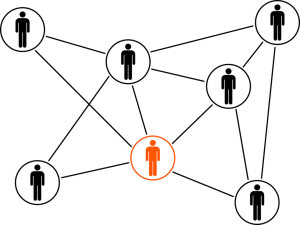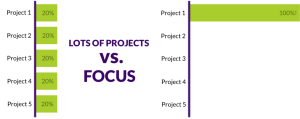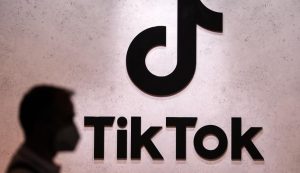A successful hiring process depends on the recruiter’s skills, strategies, and technology efficiency.
Without these three elements, it would be challenging to identify the most compatible candidate and communicate smoothly.
But many companies still rely on outdated techniques and overlook the importance of advanced tech. However, tech can help them streamline their processes, be more accurate and data-driven.
Plus, 68 percent of recruiting professionals say that the best way to improve recruiting performance over the next five years is by investing in new recruiting technology. A recruitment app covers all stages of the hiring process and helps employers and job seekers connect on an easy-to-navigate platform.
These HR tools are efficient in streamlining activities and processes, resulting in improved quality. People use them to post job openings, find suitable candidates, and look for jobs.
Thanks to that, recruitment apps are replacing traditional hiring methods, such as using Excel or Google Docs to track the process and source job applicants. Moreover, recruiters can use them for all hiring steps, including conducting interviews and onboarding employees.
Recruitment apps are also stellar for the post-pandemic era and remote work, allowing HR professionals to reach candidates across the globe, work from anywhere and speed up collaboration. Thus, they enhance data processing and make it easier to organize files and keep them safe.
In general, recruitment apps allow you to share your job posting across various job boards and access all job applications in one centralized dashboard. Traditional employment websites require you to log in every day and analyze multiple resumes per day on each platform.
But there’s more to recruitment apps than you think.
Why Millennials and Gen-Z Like Recruitment Apps?
Millennials (born between 1982 and 1996) and Generation Z (born between 1997 and 2012) are the youngest generational cohorts in the workplace, and marketers strive to understand what they like. Recruiters are also eager to identify how to attract young job seekers and communicate with them.
These generations were born after the rise of the world wide web or came of age when social media networks became all the rage. Because of that, they’re digital natives.
Gen-Z and the youngest Millennials hardly remember the world without the internet and having access to high-tech 24/7. Hence, these two have a tight-knit relationship with their digital equipment and might find it hard to imagine working in a place that doesn’t embrace advanced technology.
It’s no surprise that Gen-Z isn’t fond of an outdated recruitment tech. A recent survey found that 46 percent applied for a job on a mobile device, and 26 percent said that a lack of modern technology throughout the hiring process would make them reconsider working with a company altogether.
On the other hand, 85 percent of Millennials use their mobile phones when on the job hunt. Thus, it appeals to them when a company uses technology that aligns with its culture and values.
Gen-Z and Millennials notice the tools recruiters use and how digital-savvy they are. Because of that, they like it when HR professionals utilize modern recruitment tools.
Before moving on to the advantages of using this tech, we’ll reflect on its beginnings for an in-depth understanding.
A Brief History of Recruitment Apps
- World Wide Web – Without global access to the internet, there would be no digital recruitment apps. Thanks to the World Wide Web, recruiters and job seekers started using the first job boards and career sites. Employers would use them to post their job ads and job seekers to look for available opportunities.
- Social Media Networks – Social media revolutionized the world and recruitment itself. Once people started using it beyond posting funny statuses and aesthetic photos, it became a place for reaching out to candidates, customers, and stakeholders. As a result, recruiters use it to share their job openings, announcements and connect with the target audience.
- Mobile Apps – Mobile phone apps quickly entered the picture and joined social media recruitment. This technology streamlines processes and makes everything available in a portable device.
- Cloud-Based Apps – A cloud-based software represents the latest wave of modern technology. That means that data is on a cloud instead of a local machine or server.
Advanced recruitment apps combine mobile and cloud-based apps and leverage intelligent algorithms, fast mechanisms, and a data-driven approach. They came to life to answer the increasing need for convenience, smooth communication, and interconnectedness.
Mobile apps and cloud-based apps allow people to access their data and work assignments anywhere. As a result, recruiters can communicate with their teams and candidates while traveling or ordering a pizza downtown.
That is also the reason why recruitment apps aren’t going anywhere. However, they will inevitably evolve and continue adapting to the ever-changing world and technology.
Despite their convenience and efficacy, many companies and professionals still have doubts concerning recruitment apps. Here’s what typically stops them from using them.
Misconceptions Companies Often Have About Recruitment Apps
- Recruitment apps are overly complex – Many recruiters think that using them requires demanding skills and knowledge due to their complexity. They fear they might be too challenging to use and understand. Therefore, some recruiters refuse to give recruitment apps a chance. Yet, these tools typically have a stellar UX and UI, ensuring that everyone can implement them and add them to their workplace technology.
- Recruitment apps are too expensive – A typical misconception HR professionals have is that adopting recruitment apps requires substantial money. Because of that, they fear they wouldn’t get a buy-in from the C-Suite. Although some tools might be more expensive than others, there are plenty of affordable solutions, even for small businesses.
- Investing in recruitment apps equals wasting money – Business leaders and hiring managers often believe that recruitment apps are a waste of money. They don’t think these tools offer a significant value for the investment. Thus, many HR professionals believe they already have the necessary equipment or prefer the traditional way.
- Recruitment apps are time-consuming – Some recruiters think that learning how to use recruitment apps, implementing them, and using them every day is time-consuming. Yet, recruitment apps can shorten the time needed to hire a candidate, run interviews, and onboard employees.
- Recruitment apps are inefficient – Despite their multifunctional abilities, many HR professionals believe that recruitment apps aren’t efficient. They don’t understand the benefits and how these tools function. Moreover, some recruiters are unsure how recruitment apps contribute to their activities, making them wonder what’s the catch.
- Recruitment apps have an overwhelming number of notifications and updates – Most recruiters want to avoid receiving an overwhelming number of notifications during the day. Frequent updates also bother them and make them skip recruitment apps. These tools offer an option to turn off notifications and add upgrades automatically. Recruiters can also choose if the app can notify them about particular things they find significant. On the other hand, notifications can be beyond helpful, ensuring HR professionals don’t forget meetings, scheduled calls, and interviews.
- Recruitment apps cause bugs and glitches – Indeed, hardly any software is entirely free from occasional glitches. Yet, that’s not a reason enough to discard recruitment apps altogether because this rarely happens. Thus, vendors and app developers continuously update their apps and fix the bugs as soon as possible.
- Using recruitment apps requires employee training – Company leaders often believe that recruitment apps are difficult to use and require employee training. They fear they might have to invest in additional workshops and learning sessions to equip their staff with the skills and knowledge necessary for using these tools. Yet, that is rarely true as most recruitment apps have an easy-to-navigate user interface, and people can utilize them right after downloading them.
How Recruitment Apps Improve the Recruitment Process
Here’s everything you should know about the advantages of recruitment apps:
1. Reach Candidates with More Ease
Recruitment apps give you easy access, wherever you are. Hence, you can analyze and use your candidate data and communicate with the team anytime if you have internet.
That makes it easier to reach out to job applicants across the city, country, or continent. The dashboards are typically easy to use and allow you to perform various actions in one centralized app, ensuring you don’t need to use multiple programs.
2. Attract Your Target Audience
Being data-driven is among the principal benefits of top-notch recruitment apps. These insights allow you to understand your target audience better, know how to convey the right messages, and frequent the places where they like to be.
Plus, most companies want to attract the youngest job seekers, Millennials and Generation Z. These two cohorts appreciate recruiters who use modern tools and understand their needs.
3. Increase Productivity
A traditional recruitment process requires various tedious tasks resulting in manual activities. Yet, recruitment apps allow them to speed up their hiring processes, reduce the number of demanding assignments, and invest their time into activities that add more business value.
That’s because these tools enable recruiters to hire employees, reach stakeholders, or improve engagement.
4. Smart Notifications Make Things More Convenient
Although many HR professionals believe that recruitment apps equal annoying notifications, these can be beyond helpful. They ensure recruiters don’t forget about critical assignments, meetings, or events.
Thus, they can choose what push notifications they’ll receive, decide what’s more significant to them, and how recruitment apps can assist them efficiently.
5. Enhance Communication
Recruitment apps enable recruiters to respond quickly and communicate with their team and candidates. That way, they foster job applicant engagement and maintain everyone in the loop about the latest changes and application status updates.
On the other hand, HR professionals can also enhance their collaboration with customers and stakeholders because these tools go beyond recruiter-candidate connections.
6. Expand Social Outreach
The HR industry is highly competitive due to the talent shortage. Because of that, it’s essential recruiters can connect with people across various platforms and start conversations.
Recruitment apps enable social media integration, allowing HR teams to share their job openings and engage with candidates on LinkedIn, Facebook, Instagram, and TikTok.
7. Streamline Candidate Data Collection
Recruitment apps typically have a centralized dashboard that enables recruiters to compile candidate data from various sources, including job boards and social media platforms. Thanks to that, they can collect information about the job applicants smoothly and keep everything in one place.
8. Recruitment Apps Are Cost-Effective
Despite the stereotype that recruitment apps are expensive, these tools are usually affordable and provide value for financial investment. They allow recruiters to reach candidates quickly, post job ads easily, stay ahead of their competitors and attract their target audience.
Plus, many vendors provide a free trial or demo, allowing buyers to understand whether their app works for them and how it helps them provide their processes.
9. Make Your Recruitment More Data-Driven
Recruitment apps use AI and intelligent algorithms. As a result, they help recruiters make their strategies more data-driven and use facts to improve their decision-making.
10. Texting Feature Allows Quick Candidate Reminders
Communication becomes more efficient with recruitment apps as they allow HR professionals to reach out to candidates with friendly messages and send them timely reminders concerning interviews and onboarding.
11. Recruitment Apps Provide the Automation Advantage
Many recruitment apps enable HR teams to automate their emails, track job applications, use chatbots, or schedule interviews. Therefore, recruiters can focus on the efficient selection process and choosing the most compatible candidate.
12. Improve Your Data and Candidate Information Search Efforts
Recruitment apps often include an ATS, enabling recruiters to store candidate data, use the search tool to find information quickly, organize documents, and speed up their decisions.
13. Parse Candidate Resumes with More Ease
Another benefit of many recruitment apps is that they offer resume parsers. Thanks to this feature, HR professionals can leverage AI to assess candidate job applications, find those whose skills match the requirements, and find the most suitable individual.
14. Make Job Descriptions More Engaging
Hardly any candidate likes non-informative and dull job ads that only say the elementary things. Although that might not stop them from applying, descriptions that include videos, tags, and images are more likely to attract a larger audience.
Recruitment apps and social media integration make job ads more engaging and innovative.
15. Reduce the Time You Need to Source Candidates and Hire
Concerning that recruitment apps speed up tedious tasks and accelerate the process, recruiters will improve their time to hire and focus on identifying the most compatible job applicants. Thus, they can reach their target audience easily, resulting in a shorter candidate sourcing time.
16. Recruitment Apps Allow Real-Time Communication
Traditional hiring methods force recruiters to communicate with their candidates and clients via emails, going back and forth, which often takes a few days. However, modern recruitment apps allow real-time conversations, push-up notifications for job applicants, and advertisement of available positions.
17. Save Data in Case of Power Outages or Other Unpredicted Circumstances
Cloud-based recruitment apps store the data on the cloud. Thanks to that, documents and information are safe from unpredicted situations and always available to the users.
18. Improve Team Collaboration
Communication features enable continuous and fast collaboration across departments, units, and teams. As a result, HR professionals can share information and avoid miscommunication.
19. Make Remote Hiring Smoother
Remote work and hiring are the future, and it’s essential to have adequate technology to accommodate it. Recruiters can rely on recruiting apps to collaborate efficiently despite the geographical distance and perform their activities the same way they would in the office.
21. Make Data Sharing Easier
Dynamic and efficient work requires quick and uninterrupted data sharing. Recruitment apps are a great way to send and receive documents immediately and edit and comment files.
22. Recruitment Apps Reinforce KPIs Efficiency
Due to being data-driven, recruitment apps help recruiters reinforce their KPIs and measure them with more efficacy. Thus, they can use intelligent algorithms to identify what metrics to implement and track.
Who Can Use Recruitment Apps
Recruitment apps offer plenty of features and advantages that make them helpful for businesses regardless of their size. They cover every recruitment stage and typically don’t require prior training or skills to use them.
Moreover, these tools are a stellar investment due to being affordable and cost-effective. Thanks to that, recruitment apps are stellar for large enterprises, startups, medium-sized companies, and small businesses.
But HR professionals should identify which ones meet their recruitment needs to get the most out of them. That means they should determine if they need a recruitment app to boost their candidate tracking, team collaboration, or one that provides multiple functions.
What Do You Need to Use Recruitment Apps?
Recruitment apps are typically easy to implement and use, not demanding specific skills. Besides, the tech infrastructure requirements aren’t overwhelming.
The only things you typically need to use recruitment apps are a stable internet connection, PC, laptop, or a mobile device.
Top 5 Recruitment Apps
If you’re unsure where to start with recruitment apps and which one would be the best for you, here’s our pick:
1. Manatal
Among the leaders in the SaaS industry, Manatal’s cloud-based recruitment app simplifies the hiring process, making finding top talents easier with its multifunctional software, centralized dashboard, AI-powered features, and collaborative tools.
2. LinkedIn Recruiter
This recruitment app gives its users access to its network, allowing recruiters to reach professionals across all industries and age groups.
3. SHAPR
Shapr has a similar interface to Tinder, and it helps users connect with professionals who share similar ambitions and values, creating opportunities for recruiters and job seekers.
4. InterQ
InterQ improves the interview process by enabling job seekers to answer job-related questions and recruiters to narrow their talent pool.
5. iMocha
This recruitment app is a skill assessment software that enables HR professionals to conduct real-time interviews.
Recruitment apps optimize the hiring process, speed up activities, and help recruiters reach job seekers seamlessly. They’re helpful for every business size and industry.
Take your recruitment to the next level today. Try Manatal’s 14-day Free Demo and make the most of its multifunctional cloud-based software.
Business & Finance Articles on Business 2 Community(49)






